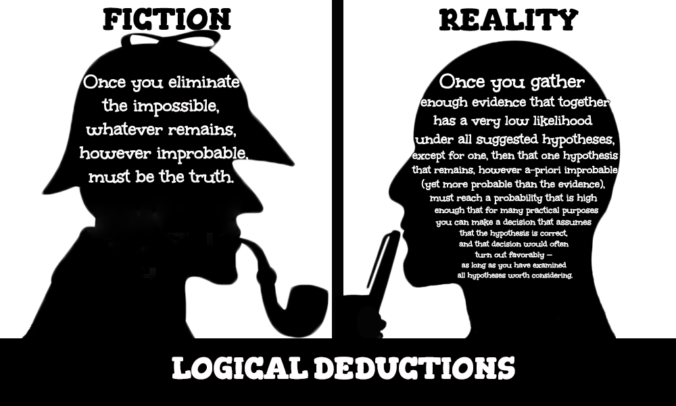We’re proud to announce some exciting updates to Rootclaim. Since its inception, Rootclaim has focused on exposing the truth on many issues in public discourse using probabilistic inference. Rootclaim has established an outstanding track record, using proven mathematical models and publicly available information to overcome the flaws of human reasoning. However, this time consuming approach limited us to being able to respond to relatively few events.
We are glad to announce upgrades to Rootclaim that will deliver more agile, simplified, and timely analyses.
Previously, much of the analysis work had gone into the tricky effort of identifying and dealing with evidence dependencies. Going forward, we will group dependent evidence and analyze them jointly. This will allow Rootclaim and the readers to examine the evidence in the context of the investigation that exposed it, easily evaluate interdependencies, and assess the significance of missing evidence. Likewise, previously, a large portion of the effort had gone into the analysis of minor pieces of evidence, which have little effect on the calculated results. When analyzed as a group, minor details often lose their relevance.
These new efficiencies will allow us to publish analyses and provide the most reliable estimates about developing stories within a few days instead of the weeks of work that have been previously required.
The new analyses will be more readable while still maintaining Rootclaim’s high level of accuracy, and they can be read from top to bottom without knowledge of probability theory. Each group of evidence and its effects on the likelihood of the hypotheses will be clearly explained.
We have republished the following two analyses using the new model:
- Who carried out the chemical attack in Ghouta on August 21, 2013, reiterating the unpopular finding that the Syrian government did not order the attack.
- What caused the disappearance of Malaysia Airlines flight 370, confirming that the pilot likely committed suicide.
We are also working hard analyzing the 2020 election results for indications of fraud, and will soon publish our analysis on how the COVID-19 pandemic started, with some surprising results…
We invite you to keep following us on social media (and invite your friends!) for updates on new stories, and ask for your help reviewing our analyses and contributing your inputs.





Recent Comments